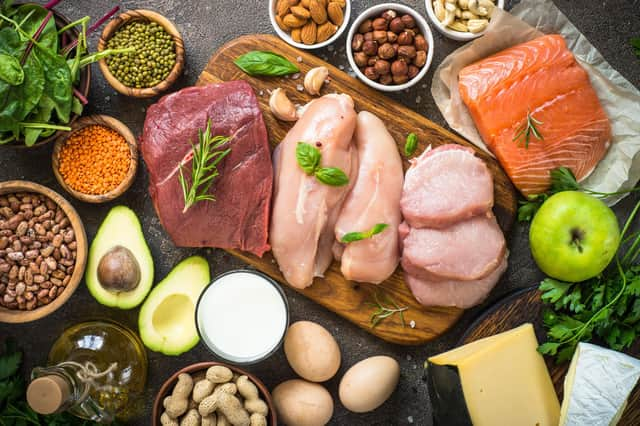Dr's Casebook: Eating more protein and drinking more tea and coffee may help women reduce the risk of hip fractures


Dr Keith Souter writes: Anything that reduces this risk is worth considering. Recent research by food scientists from the University of Leeds, published in the journal Clinical Nutrition, has found that women who increased their protein intake by 25 grams a day reduced their risk by a staggering 14 per cent. Very interestingly, they also found that every additional cup of tea or coffee they drank was associated with a four per cent reduction.
The study came from the UK Women’s Cohort Study, which recruited participants between 1995 and 1998. At the time they entered the study, the women ranged between 35 and 69 years of age. Over 26,000 women were involved and all of them filled in health questionnaires. Hospital records over the following 20 years revealed that three per cent had fractured a hip or had a hip replacement.
Advertisement
Hide AdAdvertisement
Hide AdThe benefit was particularly marked in underweight women, who may be more at risk of fractures as they may be more likely to have reduced bone mineral density and muscle mass. They found that for them a 25 gram increase in protein reduced the risk dramatically by 45 per cent.
They suggested that the protein could come in any form. It could be meat, dairy or eggs. For people on a plant-based diet, it could be from beans, nuts or legumes. Three to four eggs would provide around 25g of protein as the average egg contains six to seven grams of protein. So too would a steak or piece of salmon. And for a plant-based diet 100 grams of tofu would provide about seventeen grams of protein.
Proteins are needed to keep cells, tissues and muscles working properly and they are essential for bone health. The beneficial effect of tea and coffee is because they both polyphenols and phytoestrogens which are known to maintain bone health.
Comment Guidelines
National World encourages reader discussion on our stories. User feedback, insights and back-and-forth exchanges add a rich layer of context to reporting. Please review our Community Guidelines before commenting.